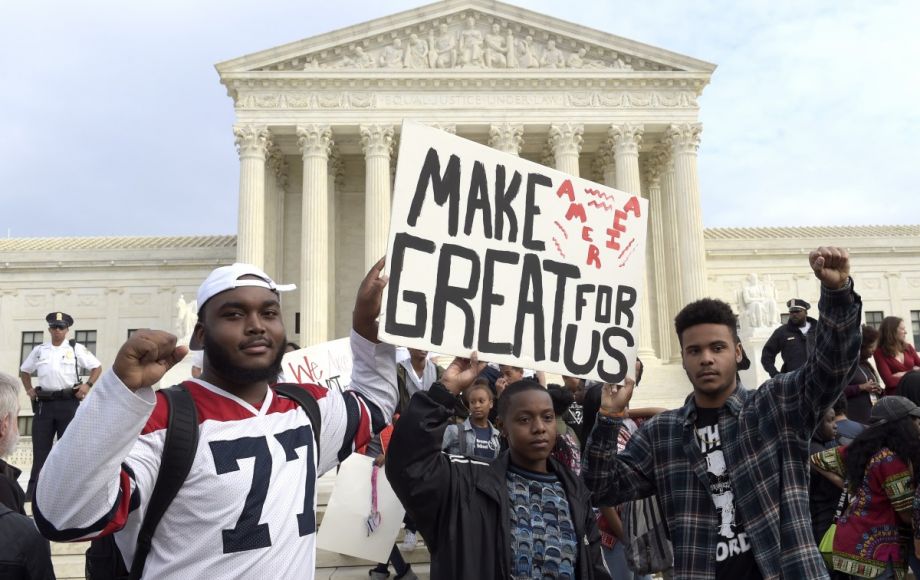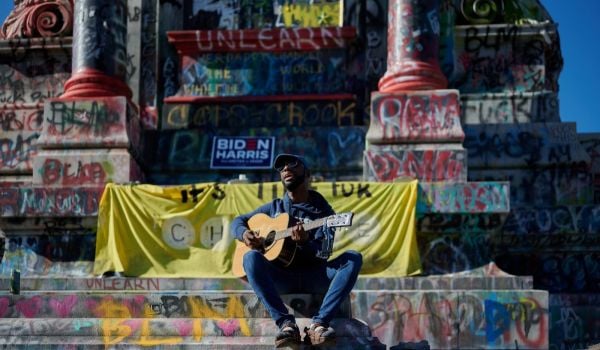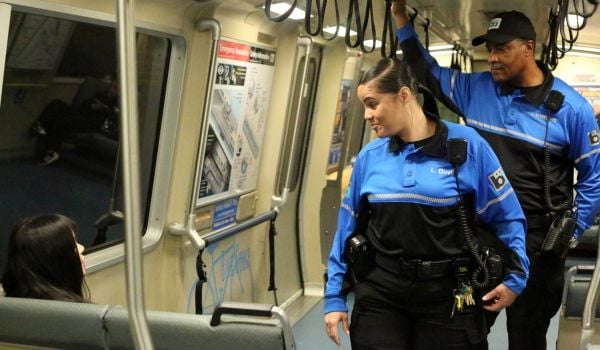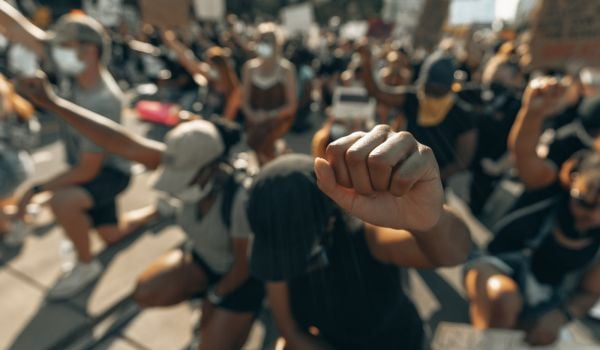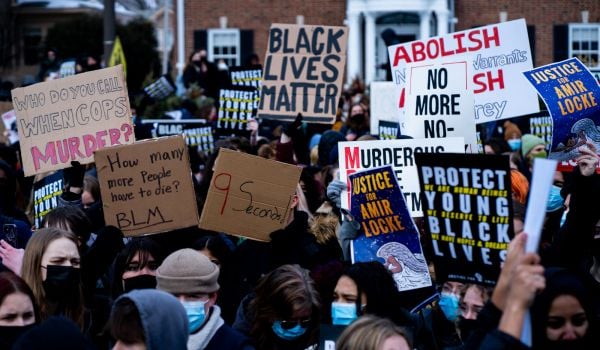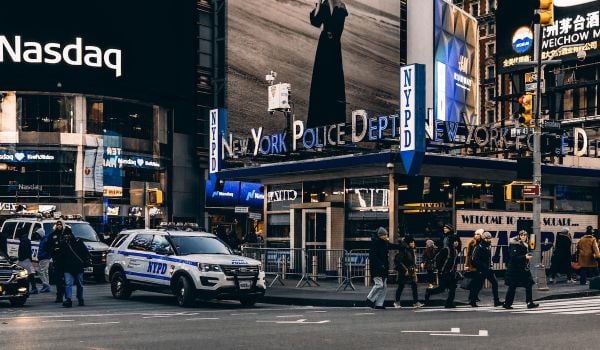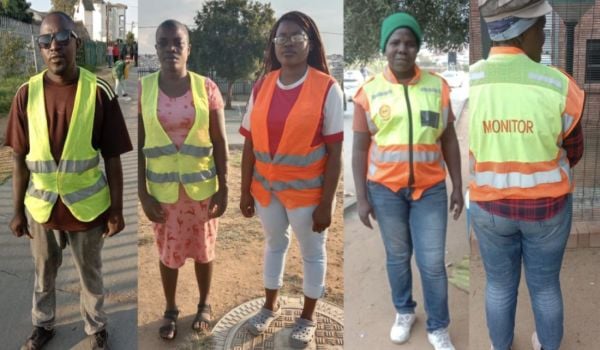Despite a record crowd of 2 million attendees, a flurry of racist threats and concerns about a possible terrorist plot on the eve of President Barack Obama’s first swearing-in, not a single person was arrested at the 2009 inauguration.
Considerably more discord seems likely for the Jan. 20 inauguration of Donald J. Trump.
The National Park Service has received 23 requests from groups hosting events both pro- and anti-Trump, reports the New York Times. The inauguration planning committee is anticipating another record crowd of between 2 million and 3 million Trump supporters, with D.C.’s homeland security director estimating a more modest 800,000 to 900,000. The next day, the Women’s March on Washington is expected to draw at least 200,000 people protesting the new U.S. president.
That march and many of the other demonstrations are permitted, but — no surprise here — tensions are likely to be high, and other actions of the extra-legal sort are also planned. If you plan to be one of the many converging on Washington, D.C., this weekend, here’s a guide for what to expect when it comes to the law.
When Choosing Where to Protest
“Everybody has the absolute right to protest, and Washington, D.C., has a long history of people protesting,” says Jody Dodd, a member of Philadelphia-based legal collective Up Against the Law, which leads trainings, distributes resources about protesters’ rights and helps track detainees through the legal system. (The ACLU also has a know-your-rights guide for the inauguration here.)
Even so, some actions are sure to attract the interest of law enforcement. Marching is fine; blocking streets or entering secure areas could get you arrested. D.C. is also a maze of different types of property with different legal statuses — local, federal, embassies, consulates, etc. — and will be patrolled on Inauguration Day by no fewer than three dozen different law enforcement agencies, including Metro police, Secret Service, National Guard, and police officers from 50 to 70 agencies from across the country.
While most minor offenses will likely be handled by Metro police, entering a secured area puts people at risk of being charged at the federal level.
“People need to be mindful of where barricades are,” says Dodd. “If you want to minimize the possibility of arrest you need to be sure that you don’t go through areas that have been marked off.” That includes buildings like the Senate and Congress. Being arrested there could result in federal charges too.
Dodd advises checking out a map of D.C. and where actions are taking place ahead of time. Historically, police have allowed buses bringing protesters to drop them close to the site of the inauguration, but often people will need to meet those buses down near RFK Stadium at the end of the day.
The maze of land ownership also poses a threat to the #Trump420 march, at which a local marijuana legalization advocacy group plans to give out 4,200 joints. Possessing pot is legal under D.C. law, but it’s illegal to smoke in public and illegal to possess on federal land. D.C. Mayor Muriel Bowser has said it won’t be a police priority to arrest smokers, but it can’t hurt to be aware of where you’re lighting up.
Another set of actions organized under the banner #DisruptJ20 aims to “delegitimize this government and set the tone for the next four years,” organizer Legba Carrefour told the Washington Post. While the group has a permit for their counter-inaugural march, other actions are planned that would create chaos at security checkpoints. The group is holding trainings at McPherson Square starting on Tuesday on topics including civil disobedience and interacting with police.
While those participating in illegal actions knowingly risk arrest, bystanders may be relatively safe, thanks to a class-action lawsuit against the district brought by hundreds of protesters and bystanders who were arrested without warning at a 2002 World Bank Protest. Some were hog-tied and detained for over a day before being released. Ever since, says Caleb Medearis of the National Lawyers Guild, a voluntary association that coordinates legal support for protests, police have been more hands-off.
Dodd also cautions that while most of the time police do need to warn protesters before making arrests, “if you’re at a really big demonstration four blocks away, you’re not going to hear that.”
If You’re Arrested While Protesting
“Everything is fine until it’s not,” Dodd likes to say of demonstrations. If you’re at an action and things start to go sideways, there’s a few things to keep in mind.
First, Up Against the Law and other groups use their trainings to remind everyone that people of color, women and people with disabilities are not only more likely to be heckled by counter-protesters, they’re also more likely to be targeted by police for arrest. It’s always good to use the buddy system at mass demonstrations, especially when you’re marching with people more at risk.
Second, know that running could put you at risk, even if you did nothing wrong. If detained, Dodd says it’s best to stick to the four magic phrases: Am I being detained; I do not consent to a search; I want a lawyer; and I wish to remain silent.
If the answer to the first is no, you’re free to walk away. If you are being detained, Dodd says it’s best to answer an officer’s basic questions — do give your name, and don’t give a fake one; it’s illegal to lie to the police — and then say you’ll be silent and stick to it. “If you are detained or taken into custody, it’s usually not beneficial to speak to the police,” says Medearis. Because they can, legally, lie to you. So it’s best to be silent so as not to fall for any “if you just tell us your friend’s name, we’ll let you go” tactics.
Medearis says it’s also important to be aware of D.C.’s stringent “Assaulting a Police Officer” statute. The law lumps together a whole host of behaviors that include not just physical assault but also “resisting, opposing, impeding, intimidating, or interfering” with law enforcement. As Reveal News found, D.C. residents have been prosecuted under the law for wiggling while handcuffed or yelling at an officer, and the vast majority of those charged were black.
And here’s the really big catch: This charge can hold even if the original arrest is deemed illegitimate. “If an officer is arresting you for no reason, and you resist, you’ll be arrested also for assaulting a police officer,” says Medearis. Even if that first charge is ultimately dropped, you’ll still wind up in court for the second.
Going limp and refusing to assist an officer in your own arrest is a gray area. The officer assault statute states that the detainee must be “actively oppositional,” and case law has held up that going limp should not count as an assault. But Medearis cautions that individual officers might not know that. You could still wind up arrested, and it will go on your record. A woman at a recent Up Against the Law training related a story about a friend who, when she went limp, accidentally head-butted the officer who was cuffing her from behind. She wound up with a charge for assault.
For first-time offenders and those arrested for minor charges, Metro police will likely use a procedure known as post and forfeit. Protesters will be brought to a central booking area where they’ll be given the option of paying between $50 and $100 to be released without needing to plead guilty or go before a court.
“When you do that, you are done. You don’t need to come back to Washington, D.C., for any other court things,” says Dodd. “It doesn’t show up on your record, you are not criminally charged.” It’s basically a jaywalking ticket. There will even be an ATM in the room if you need to make a withdrawal.
If you don’t take the offer, you’ll go through the whole court process, which will likely require returning to D.C. several times. (That’s one reason the District has adopted post-and-forfeit: so many protesters come from elsewhere.) Being arrested on federal charges means going through federal courts and possibly being held for several days before going before a magistrate.
If You’re Observing or Recording Protesters
If you are released the same day, you will probably not be allowed to make a phone call. It’s still a good idea to write the phone number for NLG’s or another organization’s legal hotline on your arm, in case you do get to make a call and your other belongings are confiscated. (Up Against the Law will be operating one in Philadelphia.)
Both organizations and a host of others will have legal observers at the protests, people who will not be participating in the demonstrations but will be watching police behavior and tracking arrests. If they witness police moving in to detain people, or acting in ways that seem shady, they’ll film officers and ask detainees for their names and birthdays so their host organizations can help track them through the legal system. If a friend goes missing, you can call one of these organizations to find out if they’re in custody and where and when they’ll be released.
“They could release you any time, late at night, early morning,” says Medearis. If they’ve been informed of the arrest, NLG’s jail support group will be out there waiting with Metro fare, hot cocoa and other support.
Also be aware that while everyone has a legal right to film the police, posting that footage — or streaming it to Facebook Live — could get your fellow demonstrators in trouble. That’s what happened to a teen photographed destroying a police car during the 2015 unrest in Baltimore: He was sentenced to 12 years in prison a year later.
“Just from the perspective of the legal collective, we are not about trying to put people in jail,” says Dodd. “So people just need to be aware that when you put people up on websites, there are consequences to that for the person.”
If you do film police actions, she says, focus on the officers, not the protesters. Write down badge numbers, and try to get the names and numbers of witnesses willing to speak up in court. And stay out of the way — if officers accuse you of interfering in an arrest, you could get detained too.
How to Prepare for a Protest
Before you go, consider what actions you’ll be participating in and prepare accordingly. Chaining yourself to the Lincoln Memorial? Adult diapers might come in handy.
Everyone should bring water, warm layers and snacks, and possibly hand warmers. Know that backpacks might keep you from getting through checkpoints, and knives and guns are definitely not allowed.
If you take meds, have them with you in their prescription bottle, not in a plastic baggie or a weekly med dispenser. If you’re detained, police could refuse you your medicine on the grounds that they don’t know what it is.
Jen Kinney is a freelance writer and documentary photographer. Her work has also appeared in Philadelphia Magazine, High Country News online, and the Anchorage Press. She is currently a student of radio production at the Salt Institute of Documentary Studies. See her work at jakinney.com.
Follow Jen .(JavaScript must be enabled to view this email address)

